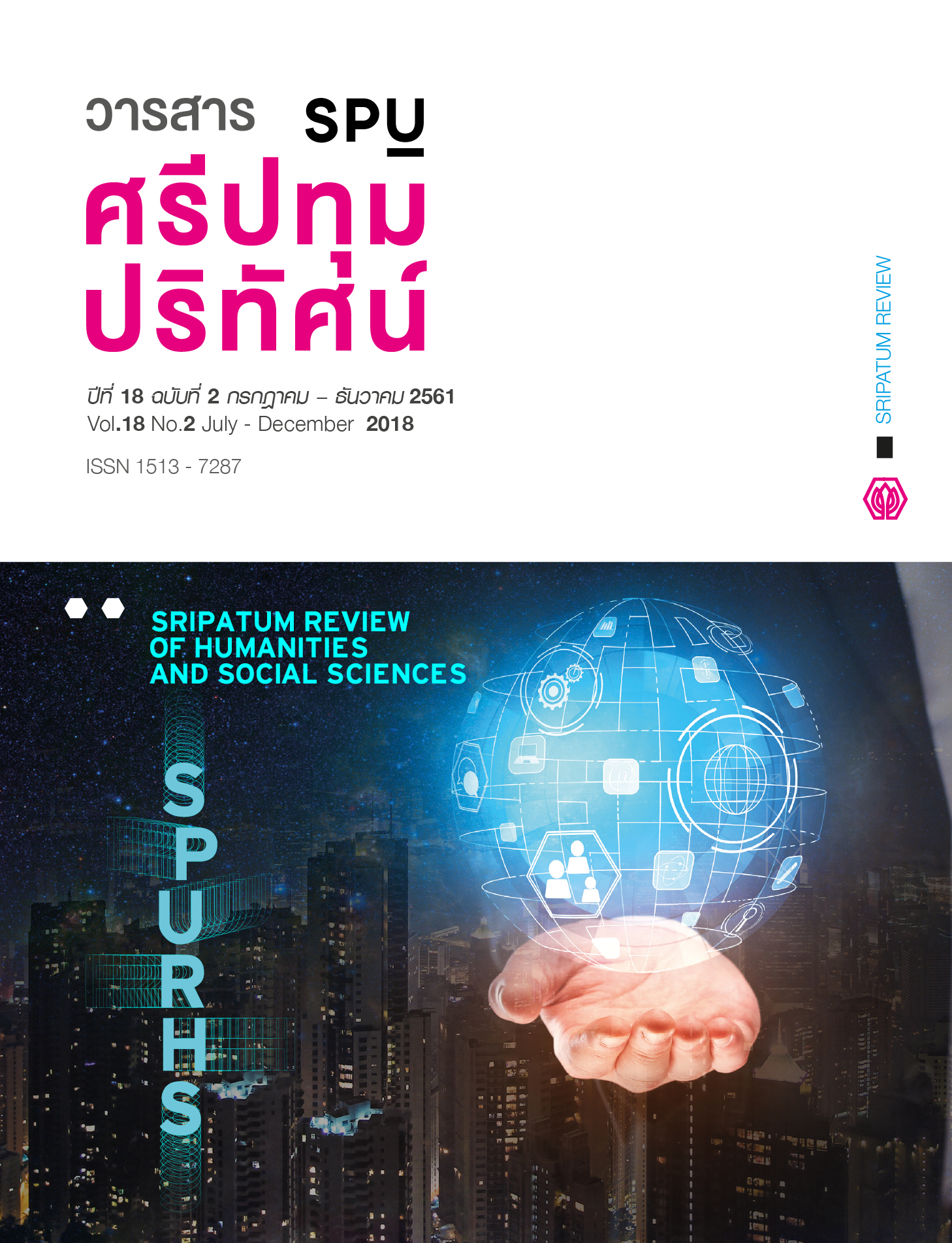CROSSING THE BRIDGE OVER TROUBLED WATER: THE EUROPEAN UNION AND PEACEBUILDING IN MACEDONIA
Main Article Content
Abstract
This paper assesses how peace building in the Former Yugoslav Republic of Macedonia (FYROM) has been implemented with a particular focus on the role of the European Union (EU). A general guiding question is, what are the impacts of the European Union’s condition for becoming its member on the peace building in Macedonia? The question further leads to answering how such impacts influence Macedonia’s politics in terms of the interethnic relations. We argue that the EU has generated positive impacts on the peace building process in Macedonia via setting up the political system characterized by racial management as a viable post-ethnic political project leading to being a peaceful and democratic state. The EU, moreover, can exert leverage on the implementation of such a project by attaching certain conditions to the success of reforms outlined by the Ohrid Framework Agreement and by heavily providing assistance mainly through development programs. However, albeit the EU’s remarkable success, there are certain side effects from such EU-led reforms, namely the intensification of the dichotomous division between the ethnic Macedonians and ethnic Albanians, thereby redoubling the exclusiveness of ethnic identity of each party. Other ethnic minorities such as the ethnic Turks and the ethnic Serbs receive less attention and have relatively limited space to address their grievances and interests which eventually slow down the peace building project in Macedonia.
Article Details
1. กองบรรณาธิการสงวนสิทธิ์ในการพิจารณาและตัดสินการตีพิมพ์บทความในวารสาร
2. บทความทุกเรื่องจะได้รับการตรวจสอบทางวิชาการโดยผู้ทรงคุณวุฒิ แต่ข้อความและเนื้อหาในบทความที่ตีพิมพ์เป็นความรับผิดชอบของผู้เขียนแต่เพียงผู้เดียว มิใช่ความคิดเห็นและความรับผิดชอบของมหาวิทยาลัยศรีปทุม
3. การคัดลอกอ้างอิงต้องดำเนินการตามการปฏิบัติในหมู่นักวิชาการโดยทั่วไป และสอดคล้องกับกฎหมายที่เกี่ยวข้อง
References
Bercovitch, J. & Jackson, R. 2009. Conflict Resolution in the Twenty-first Century: Principles, Methods, and Approaches. Ann Arbor: University of Michigan Press.
Bieber, F. & Keil, S. 2009. “Power-Sharing Revisited: Lessons Learned in the Balkans?” Review of Central and East European Law, 34, 337-360.
BIRN. 2017. More Macedonians Feel Country is Stable, Survey Shows. Retrieved October 19, 2017.
Björkdahl, A. 2006. “Promoting norms through peacekeeping: UNPREDEP and conflict prevention.” International Peacekeeping, 13 (2), 214-228.
Cicero, T. 2013. “Civil Society in Macedonia's Democratization Process.” Journal of Contemporary European Studies, 21 (2), 202-217.
Dikici, A. 2007. “Introducing Multi-Ethnic Policing in Macedonia: The Role of the OSCE.” Review of International Law and Politics, 10, 129-146.
European Commission. 2005. Regional Cooperation in the Western Balkans: A Policy Priority for the European Union. Retrieved July 14, 2017.
European Commission. 2014. The Former Yugoslav Republic of Macedonia Progress Report. Retrieved August 8, 2017.
European Commission. 2016. The former Yugoslav Republic of Macedonia Progress Report. Retrieved July 8, 2017.
European External Action Service. 2016. EU Assistance. Retrieved October 17, 2017 .
Kaldor, M. 2007. Human Security: Reflections on Globalization and Intervention. Cambridge: Polity Press.
Macnamara, R. 2012. “Slavic Muslims: The Forgotten Minority of Macedonia.” Security and Human Rights, 4, 347-355.
Maleska, M. 2010. “Interethnic relations in Macedonia: People Centred Analyses.” New Balkan Politics, 12, 1-33.
Marusic, S. 2017. Macedonia’s Albanian Language Law Moves Towards Adoption. Retrieved July 12, 2017.
Mavromatidis, F. 2010. “The Role of the European Union in the Name Dispute between Greece and FYR Macedonia.” Journal of Contemporary European Studies, 18 (1), 47-62.
Mitropolitski, S. 2013. “The Role of European Union Integration in Post-Communist Democratization in Bulgaria and Macedonia.” Canadian Slavonic Papers, 55 (3-4), 365-398.
Modanu, M. 2008. “The Evolution of Regional Actor’s Peace-Building Capacity: The European Union and Its Twin Track Approach to Peace-Building in Macedonia.” Analytical, 1, 24-36.
Neufeldt, R. 2016. “Impact and Outcomes: The Ethical Perils of Distancing in Peacebuilding Grant Solicitations.” Journal of Peacebuilding & Development, 11 (1), 54-69.
OSCE. 2017. Ohrid Framework Agreement. Retrieved October 18, 2017 .
Peshkopia, R. 2015. Conditioning Democratization: Institutional Reforms and EU Membership Conditionality in Albania and Macedonia. London: Anthem Press.
Ripiloski, S. 2011. Conflict in Macedonia: Exploring a Paradox in the Former Yugoslavia. Boulder, CO: First Forum Press.
Risser, H. & Christian-Paes, W. 2003. “Macedonia Two Years After Ohrid: A Successful Example of International Conflict Resolution?.” Südo Steuropa, 52 (4/6), 184-197.
Risteska, M. & Daskalovski, Z. eds. 2011. One Decade after the Ohrid Framework Agreement: Lessons (to be) Learned from the Macedonian Experience. Skopje, Macedonia: Friedrich Ebert Stiftung and Center for Research and Policy Making.
Seroka, M. 2016. Macedonia: All even, advantage Gruevski. Retrieved July 11, 2017 .
Sharma, S. & Welsh, J. eds. 2015. The Responsibility to Prevent: Overcoming the Challenges of Atrocity Prevention. Oxford: Oxford University Press.
Schimmelfennig, F., Engert, S. & Knobel, H. 2003. “Costs, Commitment and Compliance: The Impact of EU Democratic Conditionality on Latvia, Slovakia and Turkey.” Journal of Common Market Studies, 41 (3), 495–518.
Stamnes, E. 2004. “Critical security studies and the united nation preventive deployment in Macedonia.” International Peacekeeping, 11 (1), 161-181.
Tognela, L. 2012. “Macedonia, Interethnic Relations, and European Union Integration.” Master’s Thesis, Faculty of Graduate and Postdoctoral Affairs, Carleton University.
United Nations. 1992. An Agenda for Peace. Retrieved July 9, 2017 .
Vucetic, S. 2001. “The Stability Pact for South Eastern Europe as a Security Community-Building Institution.” Southeast European Politics, 2 (2), 109-134.
Zahariadis, N. 2003. “External Interventions and Domestic Ethnic Conflict in Yugoslav Macedonia.” Political Science Quarterly, 118 (2), 259-279.


